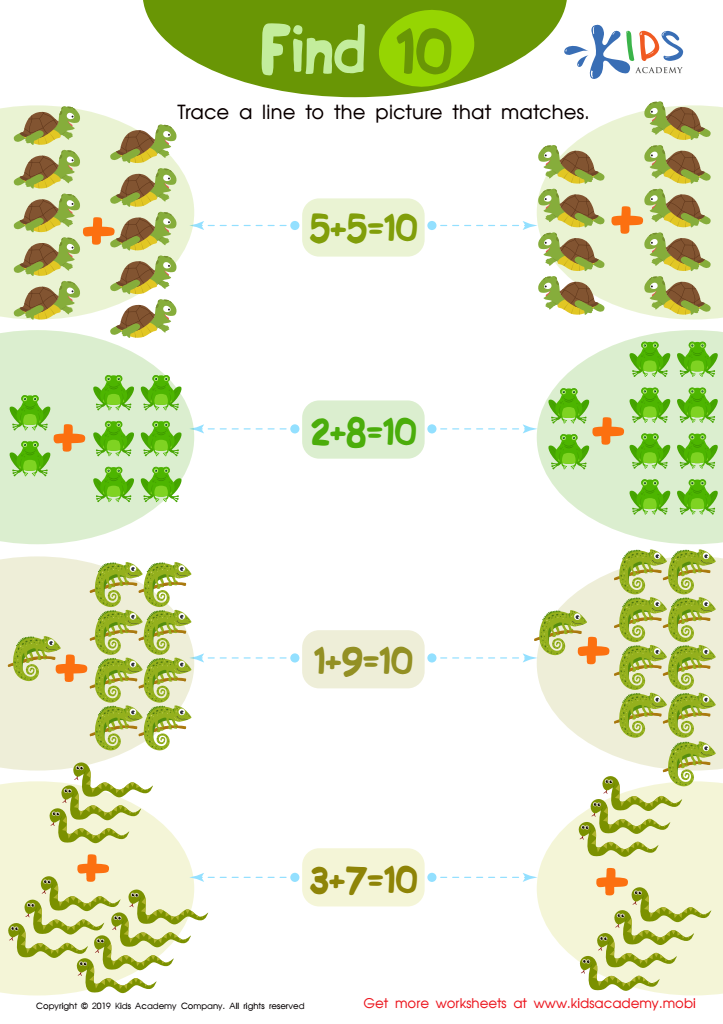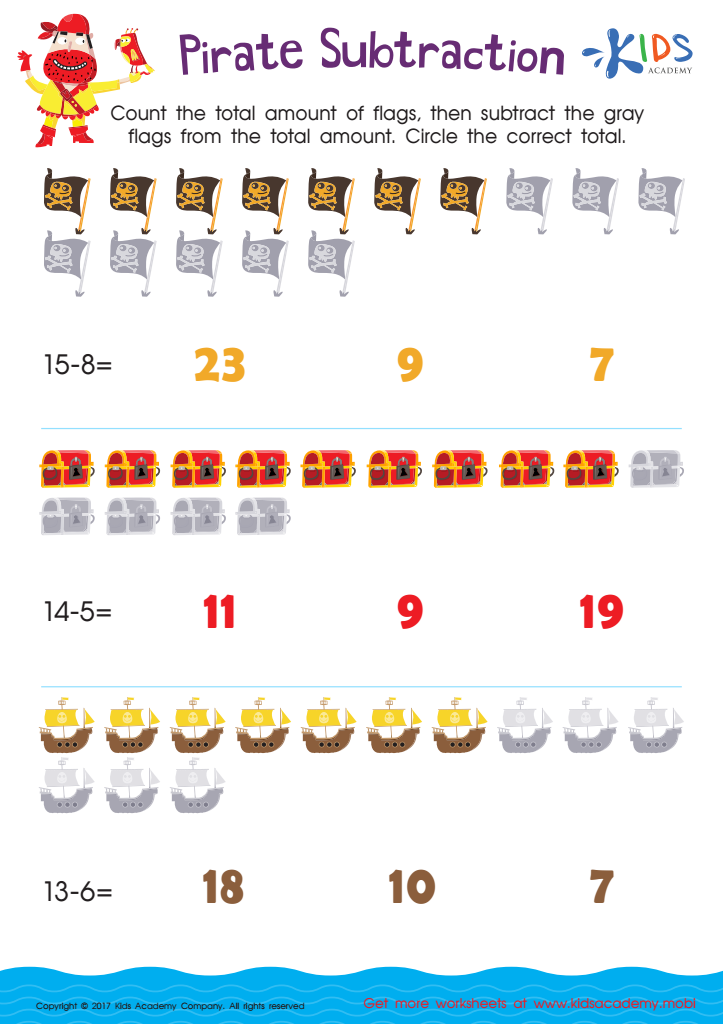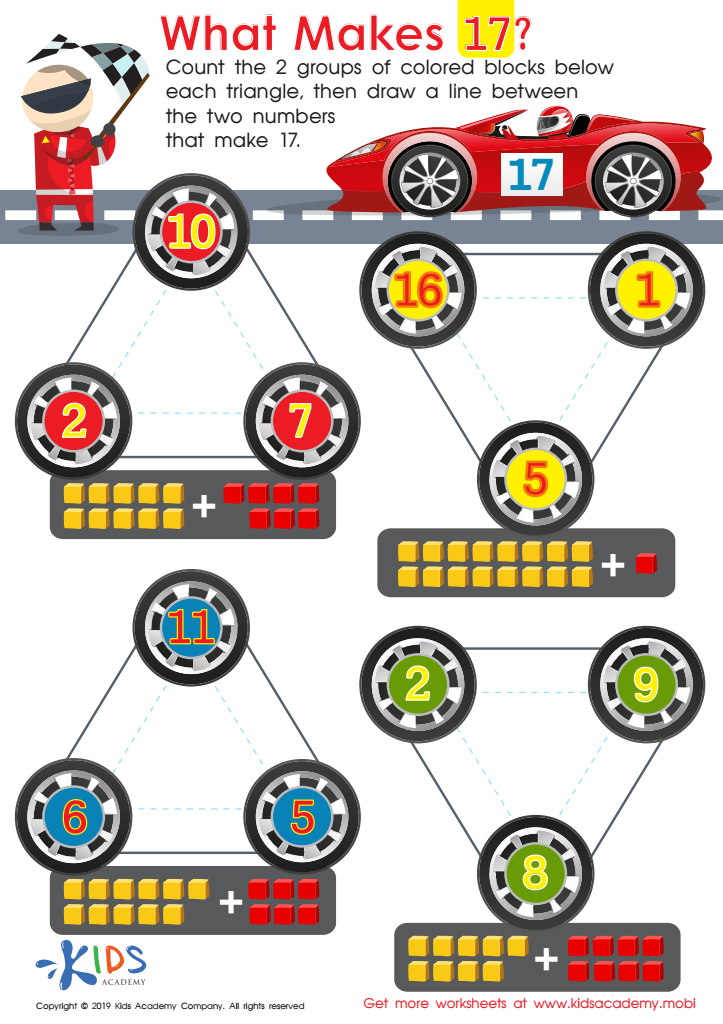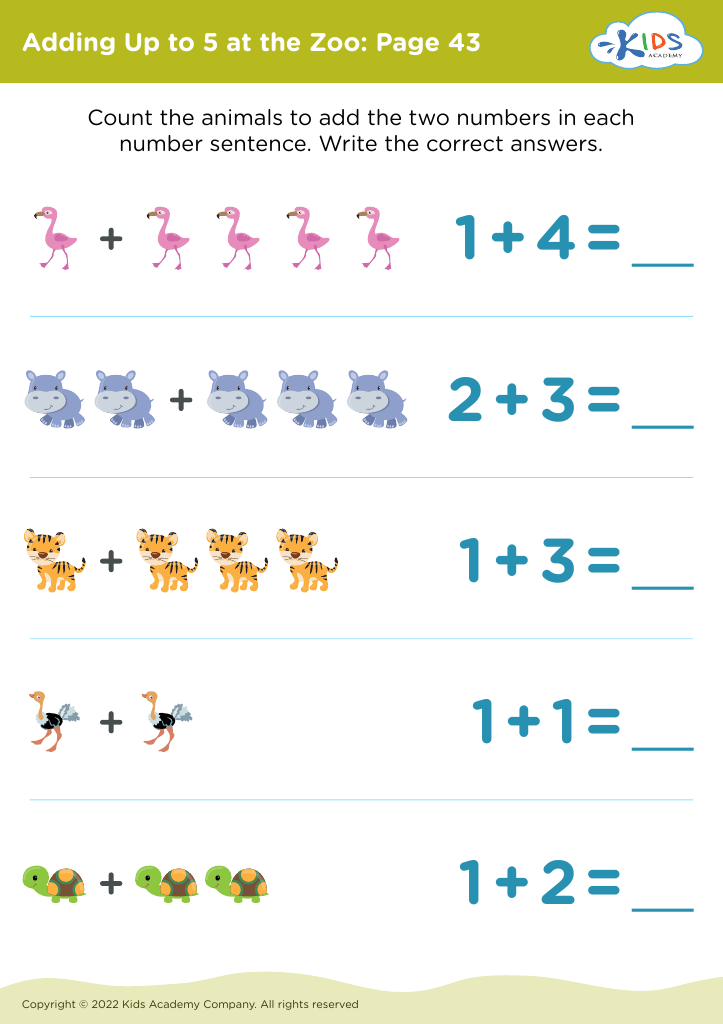Mathematical thinking Addition & Subtraction Worksheets for Ages 3-6
4 filtered results
-
From - To
Unlock your child's potential with our engaging Mathematical Thinking Addition & Subtraction Worksheets designed for ages 3-6. These worksheets provide young learners with fun and interactive activities that help build a strong foundation in basic math concepts. Through colorful visuals and playful exercises, children will develop essential skills in addition and subtraction while enhancing their cognitive abilities and problem-solving skills. Our thoughtfully crafted resources cater to varying skill levels, ensuring that every child can confidently explore the world of numbers. Start your child's mathematical journey today and inspire a lifelong love for learning with our dedicated worksheets!


Find 10 Worksheet


Pirate Subtraction Substraction Worksheet


What Makes 17 Worksheet
Mathematical thinking, particularly in addition and subtraction, forms the foundation for a child's overall cognitive development and problem-solving skills. For children aged 3-6, early exposure to these concepts fosters essential skills that extend beyond numbers.
First, engaging in addition and subtraction strengthens logical reasoning. For instance, when kids combine objects or take them away, they learn to think critically about quantities and relationships. This not only supports their mathematical understanding but also promotes executive functions such as planning and focusing attention.
Secondly, fostering an early love for math nurtures confidence and a positive attitude toward learning. When parents and teachers create fun activities around addition and subtraction, such as using counting games, manipulatives, or stories, children associate math with play and creativity. Positive experiences in math at a young age can help reduce math anxiety later in life.
Moreover, these foundational skills lay the groundwork for more complex mathematical concepts that children will encounter in school. Thus, parents and teachers should prioritize mathematical thinking during early childhood, as it cultivates a robust learning mindset and equips children to handle greater challenges in life and academics. Early investment in this area is crucial for setting children on a path towards successful lifelong learning.
 Assign to My Students
Assign to My Students





















